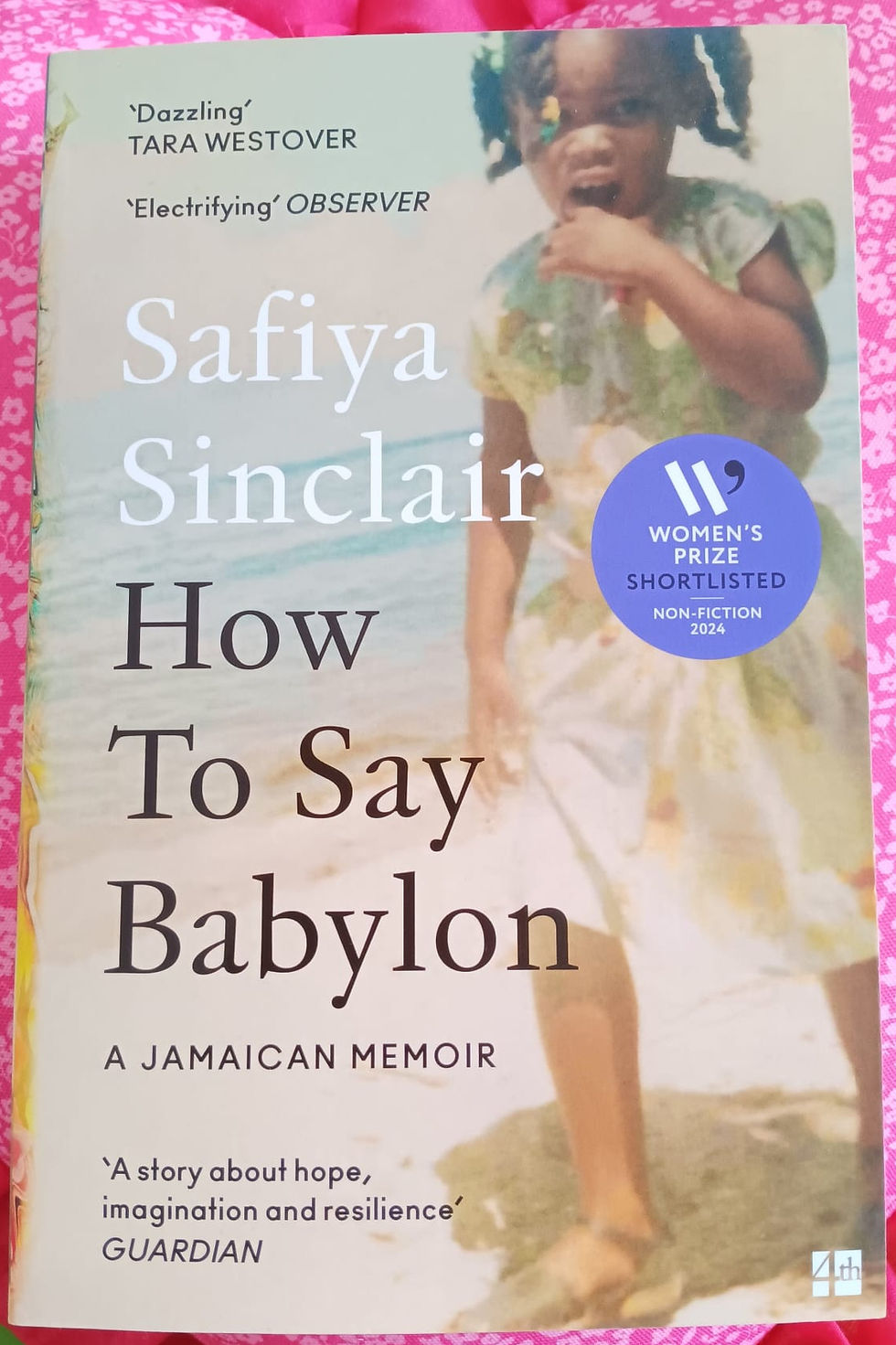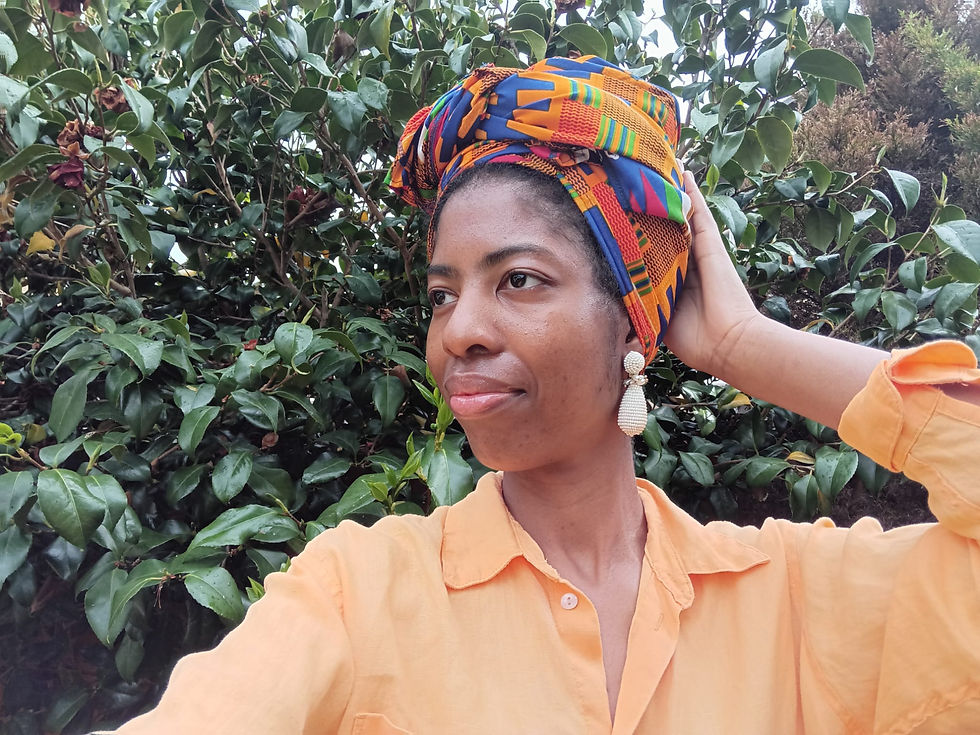BOOK REVIEW: HOW TO SAY BABYLON by SAFIYA SINCLAIR.
- booksandjoyfulness
- Jul 21
- 3 min read

This memoir is one of the best books I’ve ever read. This story will remain in my spirit. I won’t be forgetting about this book in a hurry. This memoir will stay in your psyche for a long, long time.
What is Babylon?
The title of Safiya Sinclair’s memoir is ‘How To Say Babylon’. How do we say Babylon?
In my view, Babylon has always been an abstract concept. To me, Babylon is any system, ideology or institution that oppresses people. Any environment, place or structure can be Babylon if there is inequality or oppression.
Historically, Britannica explains that Babylon was the capital of Southern Mesopotamia and was a place of political importance and a major city.
In popular culture Babylon usually is thought of as a place where there is corruption and a lack of morality and Rastafarians take a similar view of Babylon. Today, Babylon is part of Iraq, south of Baghdad.
On the front cover of the UK version of this memoir, The Guardian describes this book as ‘A story about hope, imagination and resilience’ but I feel that this memoir, Safiya Sinclair’s personal story and family story is about so much more than that. This is an author’s account of the serious damage done to a family through a father’s unyielding fundamentalist ideals; patriarchy in Jamaican culture and the treatment of women; the legacy of slavery and colonialism in Jamaica; classism (the deep inequalities within Jamaican culture); the history of the Rastafari religion, the disrespect towards the Rastafari religion and the horrific treatment of Rastafarians in Jamaica. This is also a memoir about breaking free of negative generational patterns.
In the memoir, How To Say Babylon, Sinclair’s father, Djani has a deep aversion and anger towards Babylon. To him, Babylon is the representation of everything wrong with the world and he is determined to keep his family away from it. This means isolating them, particularly his daughters and ruling his household with an extremely austere, authoritarian hand. Whilst reading this memoir, I wondered what the difference was between the outside world and the world in his household. Whilst shielding ourselves from Babylon, it is important not to create Babylon in our own environments. Through Ms Sinclair’s expert narration, we realise that anywhere can become Babylon where there is control and inequity.
Safiya Sinclair is one of the best writers in the literary scene. An incredibly accomplished poet and writer hailing from Montego Bay, Jamaica, Safiya Sinclair writes with a lyrical prose that is beautiful, lush, vivid and eye-opening. It feels as though almost every other sentence could be a line in a poem.
Sinclair writes deftly about her childhood and adult experiences in a way that is gentle yet unflinching. Safiya Sinclair invites us to examine her family history (which helps us to place her parents’ – particularly her father’s behaviour in context), but she doesn’t hold back in illuminating it and calling it out for what it is. Though Ms Sinclair, her mother and her siblings face many challenges and difficulties, she develops a love of poetry and the natural world instilled in her by her mother and Ms Sinclair and her siblings shine academically. Through giving such a detailed account of her experiences, Safiya Sinclair provides an empathetic account that sings for accountability.
(c) Afia Nicholas 21st July 2025




Comments